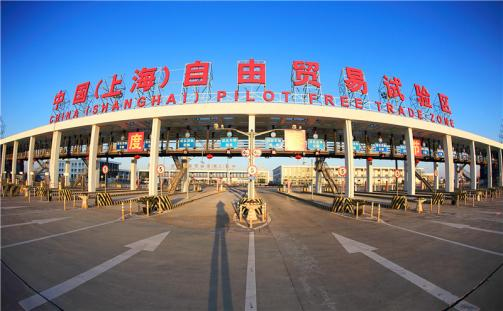Institutional innovation key to growth in Shanghai FTZ

The China (Shanghai) Pilot Free Trade Zone (Shanghai FTZ) in Pudong New Area was established in September 2013. [Photo provided to chinadaily.com.cn]
Since its establishment in September 2013, the China (Shanghai) Pilot Free Trade Zone (Shanghai FTZ) in Pudong New Area, Shanghai has helped stimulate economic growth with institutional innovation, as well as reform and opening-up.
Statistics show that as of the end of 2020, 69,000 new enterprises, including 12,000 new foreign enterprises, had been established in the zone. It has remained committed to opening-up in order to promote reform, development, and innovation over the past seven years, which has helped energize market players and boost development momentum.
In September 2013, China's first "foreign investment negative list" was issued in the zone, giving foreign investors domestic treatment in fields apart from those listed. In July 2014, the Shanghai FTZ introduced 54 measures to further promote opening-up in the service and manufacturing sectors, attracting more than 3,600 projects to the zone.
These innovative measures have helped the zone attract a number of leading enterprises involved in medical services, value-added telecommunication services, vocational skills training, and tourism services, boosting the zone's industrial agglomeration effect.
Efforts were also made to strengthen reforms in the business registration system, including the subscribed capital registration mechanism, which has greatly improved its business environment.
By taking advantage of the innovative system of the Shanghai FTZ, Shanghai has created new opportunities for the development of scientific and innovate industries. In the biopharmaceutical field, Pudong is the first district in China to introduce the Marketing Authorization Holder system, which has helped many small companies transform research results into real products.
Opening-up efforts in the financial sector have played an important role in strengthening Shanghai's ability to mobilize global resources and promote the development of the zone's offshore international trade.
This openness has also served as a magnet for foreign multinationals looking to establish regional headquarters. Statistics show that by the end of last year, a total of 362 multinational firms had set up regional headquarters in Pudong, accounting for half of Shanghai's total.








